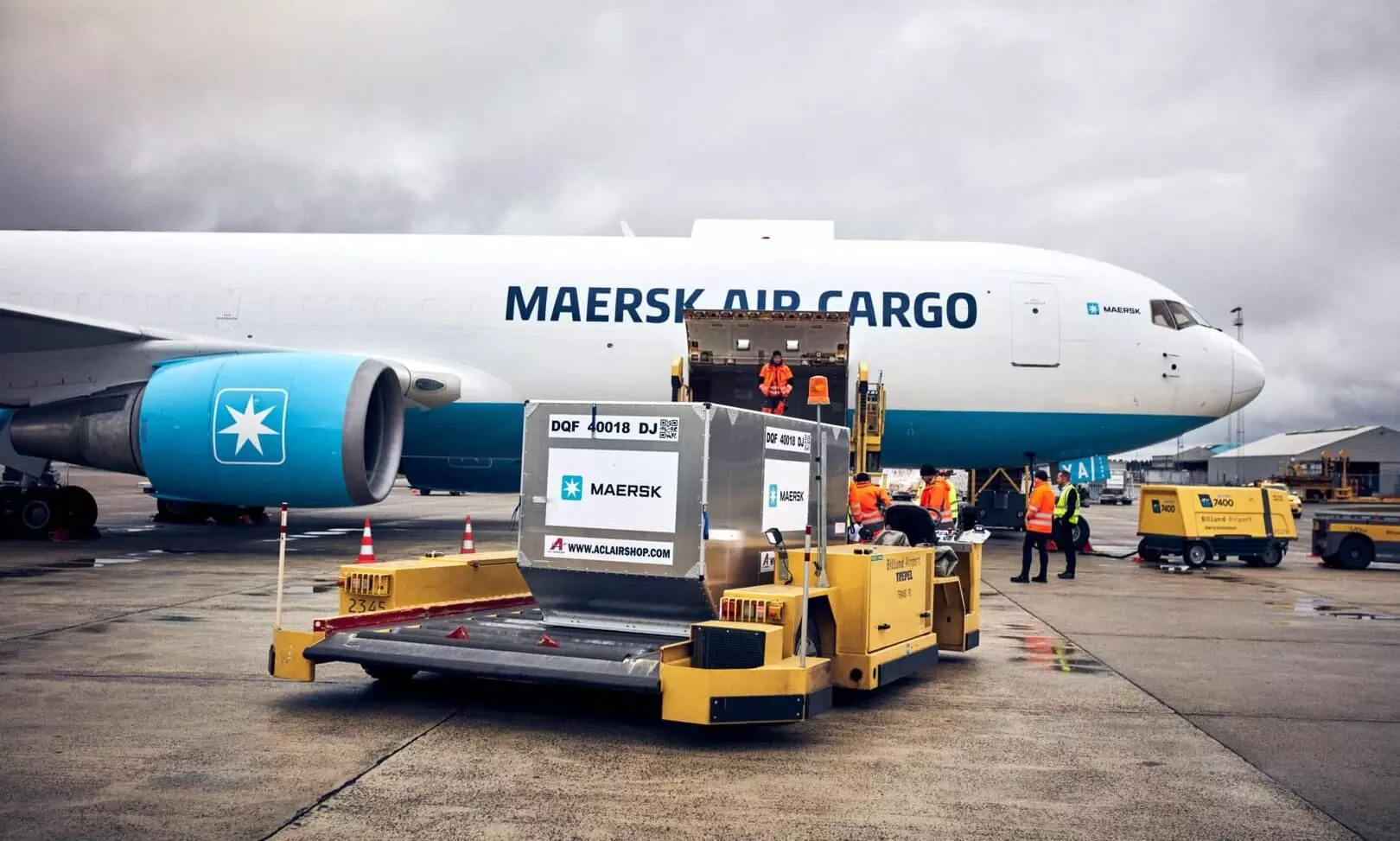
Air cargo & Europe: Recession looms, headwinds gain traction
Freight demand & capacity continue to be balanced from Europe in the background of likely slowdown

The Euro area is expected to witness a sharp economic slowdown in 2023, according to the latest projections by the International Monetary Fund (IMF). GDP growth is seen declining to 0.8 percent in 2023 from 3.5 percent in 2022, says the World Economic Outlook April 2023 report.
Germany is heading towards a recession - a negative growth of 0.1 percent in GDP in 2023 compared to a growth of 1.8 percent in 2022 before improving to 1.1 percent in 2024. France and Italy will also witness sharp slowdowns, the report added.
The United Kingdom is also seen sliding into recession (-0.3 percent) in 2023 after clocking a growth of four percent in 2022.
The global baseline forecast is for growth to fall from 3.4 percent in 2022 to 2.8 percent in 2023, before settling at three percent in 2024. "Advanced economies are expected to see an especially pronounced growth slowdown, from 2.7 percent in 2022 to 1.3 percent in 2023. In a plausible alternative scenario with further financial sector stress, global growth declines to about 2.5 percent in 2023 with advanced economy growth falling below one percent. Global headline inflation in the baseline is set to fall from 8.7 percent in 2022 to seven percent in 2023 on the back of lower commodity prices but underlying (core) inflation is likely to decline more slowly. Inflation’s return to target is unlikely before 2025 in most cases."
The IMF has projected a slowdown in trade growth, indicating that it will bottom-out in 2023, with a strong recovery in 2024, says the latest update from Sea-Intelligence, a leading provider of research & analysis and advisory services within the global supply chain industry. "A rebound in 2024 is largely credited to the easing up of inflationary pressures on the market, unwinding supply chain disruptions following the pandemic, and receding dislocations to the energy and food markets following the Russia-Ukraine war."
Air cargo and Europe
March 2023 has closed Q12023 on a positive note showing signs of stability in terms of global capacity, tonnages as well as air freight yields, according to the latest update from CargoAi, a SaaS solutions provider for air cargo services.
The overall global belly freight capacity increased by 9 percent in March to 1.5 million tonnes from 1.4 million tonnes in February. The global freighter capacity has also marginally increased by 5% to 1.2 million tonnes. "The stability in capacity seen in March are good signs of stability in demand mobilised in Q1 of 2023, which is also reiterated by WorldACD which has recorded firm average rates around 50 percent higher than pre-Covid levels and YoY tonnages down in single digit figure of -8 percent."
Outbound capacity from Europe is reviving month-on-month by 9 percent at 801,000 tonnes in March, contributing to 30 percent of the global outbound capacity. "From a YoY perspective, as per WorldACD, the overall capacity ex-Europe has increased by 13 percent."
A double-digit growth of 11 percent in freighter capacity ex-Europe in March at 340,000 tonnes "is indicative of the increasing air cargo demand at a healthy yield, featured by a 19 percent increase in freighter capacity from Europe to Asia Pacific."
Manel Galindo, CEO, WebCargo by Freightos
Manel Galindo, CEO, WebCargo by Freightos says: "Here at WebCargo by Freightos, we’ve been seeing strong volatility within the industry. Even without exceptional events, for example, air cargo costs for shipping from Europe to North America have fluctuated by over 100 percent based on Freightos Air Index data.
"There was also strong technology adoption following the rapid volatility of the early Covid days. Airlines made important investments in new technology and now several airlines report that well over half of their bookings are being conducted digitally. Here at Freightos, we’ve seen bookings increase dramatically on our platform, including WebCargo. A record 229,000 transactions were booked on our platform in Q12023, up 8.8 percent compared to the previous quarter, despite market softness."
The big underlying issue for European cargo is overall trade weakness, says Frederic Horst, Managing Director, Trade and Transport Group, which provides analysis of trends and outlook for global merchandise. Weakness is likely to continue on European lanes as manufacturing PMI for April deteriorated further. In the U.S, however, it was looking good, he added.
Air freight demand and capacity continue to be evenly balanced from Europe to Asia Pacific, North America and Latin America during the first four months of 2023, according to the April Air Freight State of the Industry report from DHL Global Forwarding. The forecast for May is also evenly balanced, the report added.
“Our new air freight hub in Billund is in the centre of a very large catchment area," says a spokesperson for Maersk Air Cargo, the airline division of container shipping giant Maersk. "Besides Denmark, cargo from countries such as Germany, Austria, Switzerland, France, Benelux, Sweden, Finland, Poland and other Baltic countries can be brought to Billund through trucking or truck-ferry combination.”
How big is Europe?
Europe continues to be a source of strength for us, says Galindo of WebCargo. "Currently, over 80 percent of the airlines available on WebCargo provide coverage within Europe. There are at least five countries in Europe where over 10%+ of air cargo bookings are conducted on our platform.
"Our biggest change right now comes from ex-Asia coverage. Recently, we announced our partnership with three Chinese Master Loaders – Sinoair, CIMC Anda Shun and Sinotech. Soon we hope to add Interlining on our platform to provide even more coverage for our freight forward customers.
“Our main focus is to leverage eBooking as a basis for further innovation – i.e., payments, network delegation between forwarder networks, and increased use of WebCargo APIs as European forwarders improve their shipper-facing tech stacks. And to make better use of data for both carriers and forwarders.”
Ashwin Bhat, Chief Executive Officer, Lufthansa Cargo is bullish on Europe operations when he confirmed that two more A321 converted freighters will arrive in Frankfurt within the next few weeks. “With just two A321 freighters we couldn't cover all the needs that were there. I have to say I was positively surprised by the reaction that we have got from our customers. With two more narrow-body freighters we are basically talking about 50 weekly flights to 12 destinations. And that's giving our customers extremely fast same day delivery service within Europe.”
Kirsten de Bruijn, Executive Vice President, Cargo, WestJet is excited about the launch of freighter operations, and adds: "We have a lot of European destinations that we are launching and obviously all of that cargo does not end in Calgary but some of it will. We do have quite a big perishable market here in Calgary but of course, the bigger cargo markets are more in Vancouver and in Toronto. So we have made sure that the connecting times are super attractive. So point to point is still very attractive to sell for the wide body."
European air cargo traffic dropped 6.6 percent in 2022, which puts cargo volumes at 98 percent of 2019 levels, says Horst The drop was after a 19 percent increase in 2021 and almost 12 percent increase in 2020.
Coming to freighter movements, Liege Airport witnessed a 22 percent increase in 2022 followed by Paris-CDG (12 percent) and a marginal decline (-1 percent) at Cologne Bonn Airport, according to data from Trade and Transport Group.
Digitalisation as solution
Logistics is a massive challenge in that even one non-digitised player can slow down the entire supply chain, says Galindo of WebCargo. "As a basic example, imagine real-time tracking across an entire shipment without last mile LCL tracking. This would render real-time visibility moot."
Martin Drew, Senior Vice President – Global Sales & Cargo, Etihad Airways.
"Etihad Cargo is trialling artificial intelligence (AI) technology to automate dimension and volume scanning, enabling us to utilise consistent and accurate values during loading and offloading and maximise available cargo capacity," says Martin Drew, Senior Vice President – Global Sales & Cargo, Etihad Airways.
"We’re also using digital solutions to enhance the customer experience. We launched a revamped online booking portal to make the booking process smarter, faster and more intuitive for our customers. In addition to reducing the time it takes to make a booking to just 45 seconds, we have continued to launch new features that make it easier for our customers to book, track and manage their air cargo shipments, including cats, dogs and dangerous goods."
Focus areas
“Our main focus commodities being moved on air cargo include auto parts, fashion and general cargo,” says Maersk Air Cargo spokesperson. “We started with three weekly flights from Billund to China, and the plan is to scale in line with customer demand.”
In line with Abu Dhabi’s vision for the future, Etihad Cargo has developed a 2030 vision focused on growth and further improving the customer experience, with partnerships at the heart of our expansion plans, says Drew. “Etihad Cargo will remain committed to collaboration and establishing partnerships that enable us to enhance our product offering. For example, we recently announced a partnership with China’s SF Airlines that will offer greater connectivity between our two mega hubs — Abu Dhabi and Wuhan in the Hubei Province. Etihad Cargo’s customers will gain greater access to 25 domestic destinations via SF Airlines’ road feeder service network, and SF Airlines will expand its Middle East and global network via our Abu Dhabi hub.
"In addition to general cargo, Etihad Cargo has identified a number of growth sectors for the next three to five years. Pharmaceuticals and life science is one sector where we expect to see exponential growth. According to ResearchAndMarkets.com, the pharmaceutical industry is estimated to grow to over $2.4 trillion by the end of 2029. To meet the needs of this booming sector, Etihad Cargo is developing solutions to enhance our PharmaLife product, including advanced temperature control capabilities on the ramp.”
Etihad Cargo will continue to invest in partnerships, says Drew, “both here in Abu Dhabi to expand our capabilities at our hub and internationally to further expand our network and product offering. Following the success of our recent agreement with SF Airlines to connect our Abu Dhabi and Hubei Province mega hubs, we are exploring further partnerships that will benefit not only Etihad Cargo’s customers but also further position Abu Dhabi as a global logistics and express hub.”

